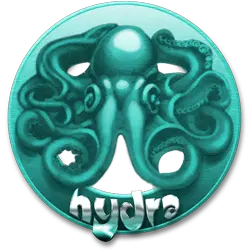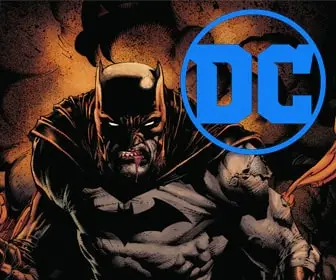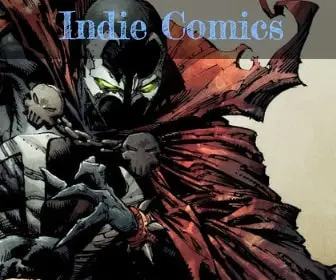
Magneto: The Master of Magnetism’s Complex Legacy in Marvel Comics
Magneto, one of the most iconic and complex characters in the Marvel Comics universe, has captivated readers since his debut in “X-Men” #1 in 1964. Created by writer Stan Lee and artist Jack Kirby, Magneto, born Max Eisenhardt and also known as Erik Lehnsherr, is a mutant with the ability to control magnetic fields. Often portrayed as a villain, his character is a nuanced exploration of the themes of trauma, morality, and the fight for mutant rights. This blog post delves into the multifaceted world of Magneto, examining his origins, powers, and the profound impact he has had on the Marvel Universe and its audience.
Origins: A Tale of Tragedy and Survival
Magneto’s backstory is rooted in tragedy. Born to a Jewish family in Germany, he survived the Holocaust, an experience that fundamentally shaped his worldview. This traumatic past fueled his determination to protect mutantkind at any cost, fearing that mutants would otherwise face a fate similar to his own. His history is a cornerstone of his character, making him a deeply sympathetic figure despite his often extreme methods.
The Holocaust Influence
The inclusion of the Holocaust in Magneto’s story adds a layer of real-world historical significance, rare for comic book characters. It provides a powerful motive behind his actions and a poignant reminder of the horrors of persecution and the importance of fighting against it.
Powers: Master of Magnetism
Magneto’s primary power is the ability to generate and control magnetic fields. This ability extends far beyond manipulating metal; he can create force fields, fly, and even manipulate the Earth’s magnetic field. Over the years, his powers have been portrayed with varying degrees of strength, sometimes making him nearly unstoppable.
Beyond Magnetism: A Powerful Leader
In addition to his superhuman abilities, Magneto is a charismatic leader and a brilliant strategist. He has led various mutant groups, most notably the Brotherhood of Mutants. His leadership is defined by his unwavering commitment to the mutant cause, often bringing him into direct conflict with humans and even other mutants, including his former friend, Charles Xavier (Professor X).
The X-Men and The Brotherhood of Mutants
Magneto’s relationship with the X-Men is complex. While often their adversary, he has also been an ally and even a leader of the X-Men at times. This shifting dynamic is central to the X-Men narrative, highlighting the blurred lines between good and evil, and the different philosophies in the fight for mutant rights.
A Philosophy of Extremism
Magneto’s methods contrast starkly with those of Professor X. While Xavier advocates for peaceful coexistence between mutants and humans, Magneto often resorts to extreme measures, believing that a more aggressive approach is necessary for the survival and dominance of mutants. This ideological clash is a recurring theme in the X-Men series, raising profound questions about justice, oppression, and the ethics of resistance.
Evolution of a Character: From Villain to Anti-Hero
Originally depicted as a straightforward villain, Magneto’s character has evolved significantly over the decades. Writers have delved deeper into his psyche, transforming him into a more complex and three-dimensional figure. This evolution from villain to anti-hero has made him one of the most interesting and enduring characters in the Marvel Universe.
A Reflection of Real-World Issues
Magneto’s character and his fight for mutant rights mirror real-world struggles against discrimination and persecution. His extreme views and actions often provoke readers to consider the lengths one might go to when fighting against systemic oppression. This relevance to real-world social issues is a key aspect of Magneto’s enduring appeal.
Cinematic Portrayals: Bringing Magneto to Life
Magneto’s transition to the big screen in the X-Men film series further solidified his status as a cultural icon. Portrayed by actors Ian McKellen and Michael Fassbender, these performances captured the character’s complexity, charisma, and inner turmoil, introducing him to a wider audience and adding new dimensions to his character.
The Future of Magneto in Marvel’s Narrative
As the Marvel Universe continues to expand, Magneto’s role remains a subject of interest. His character offers endless storytelling possibilities, whether as a villain, anti-hero, or unlikely ally. The depth and complexity of Magneto ensure that he will remain a central figure in the Marvel narrative for years to come.
Collectors
For fans of Magneto, one of the most compelling and multifaceted characters in the Marvel Universe, there are several key comic book issues that stand out for their significance in shaping his character and story. Here are five must-have issues for any Magneto enthusiast:
- “X-Men” #1 (1963): This is the issue where it all began. Created by Stan Lee and Jack Kirby, this is Magneto’s first appearance and the world’s introduction to his character. He emerges as the X-Men’s first major adversary, setting the stage for decades of complex storytelling.
- “X-Men” #150 (1981): This issue features a pivotal moment for Magneto. After a battle with the X-Men, Magneto nearly kills Kitty Pryde, which leads him to question his methods and motives. It’s a critical turning point in his character development, showcasing his depth and capacity for change.
- “Uncanny X-Men” #200 (1985): In this milestone issue, Magneto stands trial for his crimes against humanity. It’s a dramatic exploration of his past deeds and his philosophy about mutants and humans. This issue marks a significant shift in his character, as he takes on a more prominent role as a complex anti-hero rather than a straightforward villain.
- “Magneto: Testament” #1-5 (2008-2009): This limited series is a must-read for understanding Magneto’s backstory. It delves into his early life and experiences during the Holocaust, providing a deeper context to his motivations and actions. This series is poignant and powerful, giving readers a new perspective on his character.
- “House of M” #1-8 (2005): While not solely a Magneto story, this crossover event is crucial for understanding his impact on the Marvel Universe. His actions in this series lead to significant changes for mutants worldwide, and the storyline explores the depth of his relationship with his daughter, the Scarlet Witch, and his son, Quicksilver.
Denouement: The Enduring Legacy of Magneto
Magneto’s legacy in the Marvel Universe is a testament to the power of nuanced storytelling in the comic book medium. He challenges readers to look beyond the surface of right and wrong, to understand the motivations behind actions, and to grapple with the moral complexities of fighting for a cause. His journey from a symbol of pure villainy to a multi-faceted anti-hero reflects not only the evolution of comic book storytelling but also the ongoing conversation about justice, power, and the nature of heroism. Magneto, the Master of Magnetism, remains a magnetic figure in the world of comics, continually drawing readers into his orbit of complex morality and compelling narrative.













